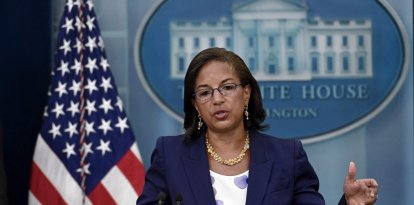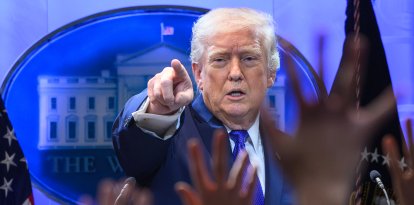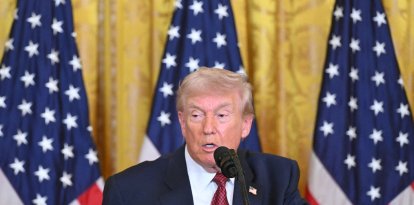Why did the media cover up Biden's cognitive decline? CNN reveals journalists feared 'blowback' from the White House
The media outlet that hosted the first debate between the president and Donald Trump conducted a series of anonymous interviews with journalists that revealed what it's like covering the president behind the scenes.

Joe Biden
Since Joe Biden took over as president in January 2021, his cognitive impairment has been covered by the media outlets that are opposed to the president, but not by others, who have opted to try to hide the situation. Even some, such as Joe Scarborough, went so far as to claim recently that the president was in his prime. Everything changed after the debate, as little by little, the media that chose not to mention the issue began to finally analyze the state of Biden's health.
CNN, which in addition to organizing the first debate between Trump and the president, spoke to some journalists covering the White House to analyze this sudden change in coverage.
The most striking revelation from this series of interviews was that many of the media did not address Biden's health because they feared "blowback ... from the White House and Democrats," and because stories about Biden's age "angered the White House (and the liberal Twittersphere) the most."
">CNN admits something unbelievably embarrassing:
— Glenn Greenwald (@ggreenwald) July 2, 2024
Many in media failed to report more on Biden's cognitive issues because they feared "blowback...from the White House and Democrats," or, worse: "age stories angered the White House (and the liberal Twittersphere) the most.” pic.twitter.com/HXdyquSmz5
The Wall Street Journal was one of the media outlets that warned about Biden's deterioration, but its piece was harshly criticized at the time, according to an article published on CNN, which also acknowledges participating in that criticism.
"Last week’s debate on CNN laid bare many of the concerns the Journal’s reporting had raised – that the president has good days and bad days but can sometimes seem to slip up. A New York Times report on Tuesday raised similar concerns by those who have recently been in the room with Biden. The Times reported Biden has more frequent 'lapses,' although at other times he appears sharp," they noted.
Prior to the debate, this type of coverage irritated the White House, whose press team had been very "aggressive" in mitigating coverage of concerns about the president's age.
On condition of anonymity to protect their identity, one of the correspondents gave a behind-the-scenes look at covering the president of the United States for the past four years.
">NEW: CNN's Jake Tapper hammers Democrats for not taking Biden's mental decline seriously, calls out Chris Coons to his face for shilling for Biden.
— Collin Rugg (@CollinRugg) July 1, 2024
"There is a pattern of democratic officials seemingly trying to convince you to not believe what you saw and what you heard with… pic.twitter.com/zaygyDfkQZ
"[B]erating reporters who bring them reporting about age concerns, bemoaning that it’s all anyone writes about (clearly, it’s not) and often attacking pieces after they run. think that’s left some folks to conclude that these stories are too painful to report or that they should pick their spots more," he said.
"The media's failure, one White House reporter said, was not pushing more aggressively on Biden's abilities after the release of Robert Hur's report in February, which called Biden an "well-meaning, elderly man with a poor memory," another reporter said.
One of the most visible examples of the changing discourse in the media was that of Jake Tapper, who after the debate went viral for both his editorials and his line of questioning of Chris Dodd, one of the president's top campaign officials.

























